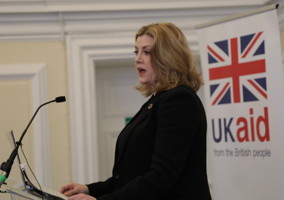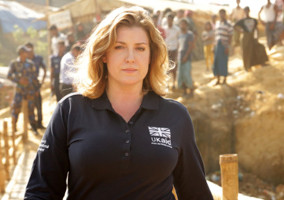All charities must take recent concerns about safeguarding seriously, the minister for civil society warned yesterday, as she revealed that the Cabinet Office is looking to tighten-up its grant standards following the scandal.
Tracey Crouch, minister for sport and civil society, was speaking at a summit co-hosted by the Department for Digital, Culture, Media and Sport and the Charity Commission yesterday, a day after the Department for International Development and the Commission hosted a similar event focused on the aid sector.
Crouch told delegates that she was “shocked and disgusted” when she first saw the allegations relating to Oxfam.
She said “government will do its part”, and that the Cabinet Office is “seeking to strengthen cross-government grants standards to include a code of conduct which will ensure high standards of safeguarding from all grant recipients”.
But she said the sector must “lead this change”.
“Meeting safeguarding responsibilities and getting safeguarding right is not a difficult concept; it is simple and essential. If it means that you have to explain higher administrative costs to donors; then so be it,” she said.
Not just about aid charities
But she said that domestic charities could not ignore the issue.
“So far the focus has been on international aid charities, but domestic charities could also come under intense scrutiny. We can all think of examples of safeguarding failings in the domestic charity sector, which is far larger and much more diverse than the international aid sector.”
Crouch praised the steps that the Charity Commission was taking on safeguarding, and said: “Given the issues that we’ve seen in the international aid sector, saying this is not a problem in the domestic sector is simply not an option.”
She said that while many charities are “leading the way”, there are some that haven’t taken their safeguarding responsibilities seriously enough.
“The worrying increase in Charity Commission casework relating to safeguarding failings in charities means that we must act,” she said.
‘Not a nice to have’
Crouch stressed that safeguarding is the responsibility of everyone involved.
“Proper safeguarding is non-negotiable. It is not ‘nice to have’. It is not a regulatory burden,” she said.
She said having right policies and practices were important but that leadership was critical so that and that people felt able to whistleblow.
“Policies and procedures, including vetting, are important, but they can only go so far - it is really only leadership and culture that can drive sustainable change,” she said.
Charities commit to improvements
The summit was attended by charities, and umbrella bodies as well as OSCR, the Scottish Charity Regulator and the Charity Commission for Northern Ireland.
A statement issued by the Commission after the event said: “Attendees acknowledged the impact on public trust in charities from the recent revelations around sexual exploitation by individuals involved in international aid agencies. They committed to working together to lead a meaningful response to safeguarding concerns facing the domestic charitable sector, and to achieve the highest standards of safeguarding.”
Attendees agreed four priority action areas:
- Leadership, culture and values
- Law, regulation and the statutory framework
- Capacity and capability in charities around safeguarding, and
- Responsibilities and reporting, accountability and transparency
Helen Stephenson, chief executive of the Charity Commission for England and Wales, said: “I am encouraged by the commitment shown today by UK charities to lead and drive improvements around safeguarding. That commitment must be followed by firm action, and we as regulator will work with and support charities in developing practical, workable changes.”
Attendees will now develop action plans for each of the themes and meet again in two months’ time to discuss the next steps.
The Commission also said it was undertaking a ‘deep dive’ of its serious incident reporting records to “ensure any gaps in full and frank disclosure are identified and responded to”.
|
Related articles












